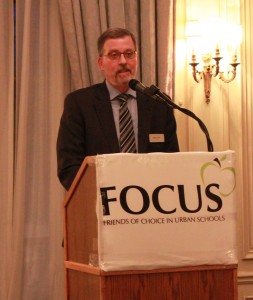The Real Threats to Charter Autonomy
In recent remarks, Robert Cane, executive director of Friends of Choice in Urban Schools (FOCUS), issued a powerful warning to the charter school movement in the District of Columbia.
Cane spoke of the momentous progress that has been made over the years in making charter schools promising educational options for DC students, but also of the threats to derail the engine driving much-needed reform in the District.
There’s no denying the strides made in DC’s efforts to create a robust charter school environment and the increased student proficiency as a result, but even the most Parent Power friendly areas still face challenges.
Of all the attacks on the charter movement, Cane says, “the most insidious is the continuous assault on what truly defines charter schools: individual-school control over operations and freedom from burdensome oversight.”
This assault comes through in a number of ways, from the ‘controlled choice movement’ to the burdensome regulations charter schools increasingly endure.
Said Cane, “Over the years legislation and regulations have been proposed that, for example, sought to require every charter school to use the same reading program; to impose uniform truancy and disciplinary policies and procedures on charters; to require every charter regardless of its mission, to adopt “universal values,” “financial literacy,” and “environmental literacy” curricula.
He continued, “Now getting serious traction nationally, the controlled choice movement would limit choice by empowering the government to centrally engineer school admissions in order to achieve increased racial and socioeconomic diversity or other goals.”
“The idea that central planning of any kind should be applied to the charter schools is more frightening than any moratorium on chartering,” he said.
In Cane’s view, charter autonomy is crucial to improving student achievement:
“The success of the charter schools also shows what all of us already know: that we’re still far short of our goal of educating every charter school kid to the limits of his or her ability. I know that many charter educators spend the majority of their waking hours working on this problem and I’ve no doubt that over time they’ll solve it in their own individual ways if given the leeway to do so.”
















No comments at this time.